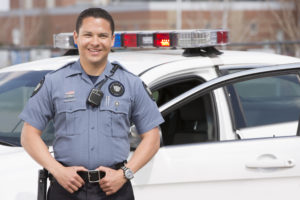Over the years, there has been a lot of debate over the presence of law enforcement vehicles inside homeowners associations. Some residential communities have covenants that prohibit such vehicles from being parked on the streets of their neighborhood. What does the law have to say about this? Here’s the real deal about police vehicles in an HOA community.
What Does the Law Say About Police Vehicles in HOA Community?
In February 2020, Florida passed S.B. 476, also known as the Law Enforcement Vehicles law. According to the legislation, HOAs in Florida cannot order the removal of police vehicles in certain areas of the community. Thus, law enforcement officers who live inside these HOAs are free to park their police cars in an HOA community.
The newly-signed law was a response to several cases wherein police officers who lived in HOAs were issued community violation notices, or even threatened with legal action, for parking their work vehicles outside of their homes.
There is a similar law in Arizona, statute 33-1809, which forbids associations from prohibiting residents from parking vehicles on their driveway or street if the said vehicle is “required to be available at designated periods at the person’s residence as a condition of the person’s employment.” This includes residents who are employed by police, fire, or emergency services.
However, most states do not have laws involving HOA restrictions on police vehicles. This includes North Carolina, South Carolina, and California. If there are no applicable laws in their state, homeowners must abide by the parking restrictions established by their HOA. Specifically, an association’s Covenants, Conditions, & Restrictions (CC&Rs) may have provisions on which vehicles are allowed in the HOA, as well as when and where they can park within the HOA.
HOA Policy on Commercial Vehicles: What Is This All About?
 It’s common for HOAs to have restrictions involving commercial vehicles in their community. However, the definition of commercial vehicles can vary from association to association.
It’s common for HOAs to have restrictions involving commercial vehicles in their community. However, the definition of commercial vehicles can vary from association to association.
Homeowners must consult their governing documents to see how these vehicles are defined. Some HOAs may have vague definitions that primarily focus on the size and weight of the vehicle.
Meanwhile, other HOAs may base their definition on the presence of specific features such as fixed hardware, additional tools or equipment, and signages or logos on the surfaces.
If an HOA has no official definition, you can refer to the classification established by the Department of Motor Vehicles (DMV). In North Carolina, commercial vehicles are trucks, vans, and other vehicles that weigh over 26,001 pounds, are used for business, and cross state lines. A vehicle is also considered for commercial use if it transports passengers or hazardous materials.
An HOA’s policy on commercial vehicles can also vary. Some associations have a complete ban on these vehicles. Others may allow commercial vehicles in the HOA as long as they are parked inside the garage with the door completely closed.
There are many reasons why an HOA would impose parking restrictions on commercial vehicles. However, the most common reasons are:
- Commercial vehicles are an eyesore and affect the aesthetics of the HOA.
- Parking is limited. Commercial vehicles will not fit in driveways.
- Private roads are too narrow. Commercial vehicles will block access to these roads.
- Commercial vehicles are a safety hazard. They create visibility problems for drivers/homeowners.
HOA restrictions on commercial vehicles can be problematic for plenty of homeowners, especially those who are blue-collar workers or business owners. Unfortunately, homeowners must follow the parking restrictions established by their HOA. This became part of your responsibility the moment you signed the HOA contract. Nevertheless, homeowners may have several options available to them.
First, homeowners could question the HOA’s definition of commercial vehicles. Based on the DMV’s definition, there’s nothing that explicitly states that police vehicles are considered commercial vehicles. If you can establish the difference between these two vehicle types, you may be able to remove the restrictions involving police vehicles in an HOA community.
You can also file a request to amend the governing documents. The HOA can hold a vote on whether to allow police vehicles in the community. If a majority vote is reached, the HOA can then amend the governing documents. The amendment must also be recorded in the county recorder’s office in order to become enforceable.
Should You Allow or Prohibit Police Vehicles in HOA Community?
 It’s up to individual HOA communities whether they want to ban police vehicles in their community or not. However, it’s worth remembering the benefits of having a good relationship with police enforcement.
It’s up to individual HOA communities whether they want to ban police vehicles in their community or not. However, it’s worth remembering the benefits of having a good relationship with police enforcement.
Most communities will have a dedicated police officer, also known as a community liaison officer. You can invite police officers to HOA meetings.
They can be a wonderful resource for increasing the safety of your neighborhood. Having a community liaison officer can also be critical should there be any crime-related incidents in your HOA.
Want to learn more about how to deal with police vehicles in an HOA community? The Cedar Management Group is here to help. Let us know how we can be of assistance to your association. You may call us at (877) 252-3327 or email us at help@mycmg.com
RELATED ARTICLES:






